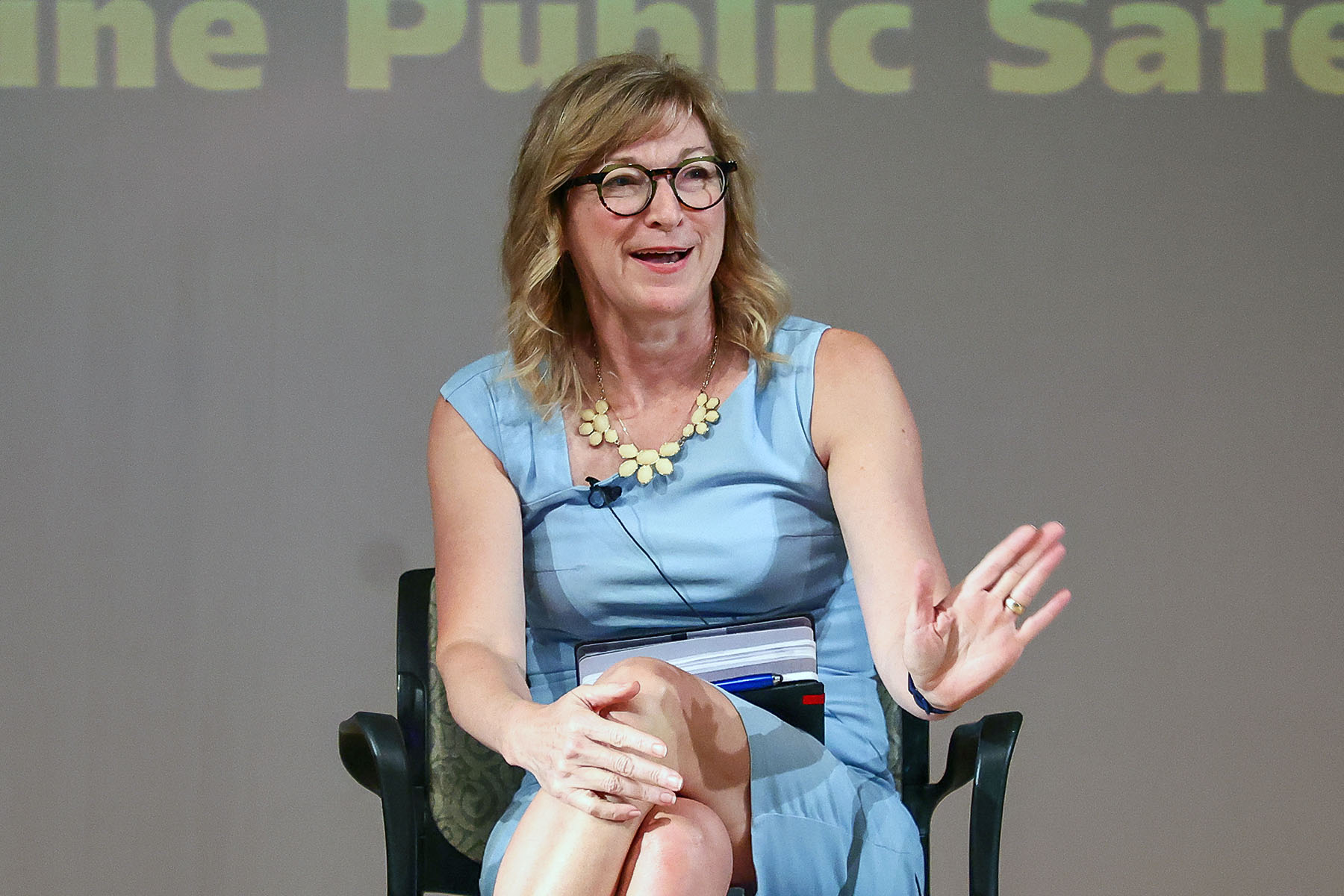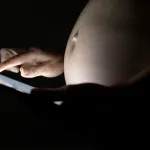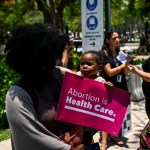Jean Peters Baker, the prosecuting attorney for Jackson County, Missouri, where Kansas City is located, has seen her share of rape and incest cases. She has crafted cases against the perpetrators to seek justice for the victims.
One case she can’t forget is of a 13-year-old girl with an intellectual disability who was raped and eventually impregnated by a family member.
Now that Missouri’s near-total abortion ban is in place, Peters Baker fears a future where she might encounter victims like this girl but under a completely different context: For seeking an abortion.
“I’m kind of flabbergasted that this is where we are. My job has been to defend and protect and try to gain some measure of justice for rape victims and incest victims for my entire career. And then I find myself in a situation where the criminal justice system will very well likely retraumatize them,” she said. “It’s the opposite of what I think my duty is.”
Prosecutors like Peters Baker are yet another part of the justice system that will have to navigate aspects of reproductive health that were previously between a doctor and patient.
“It’s a really interesting intersection, as we see this process play out, to think about them as part of a much larger tapestry of public officials who are now all dealing with this decision across the country,” said Trishala Deb, director of national programs at the Collaborative for Gender + Reproductive Equity .“I think that we’re in such a difficult time right now where we’re having a conversation that no one wants to have, which is the idea of young people, mothers, working-class folks being criminalized for accessing health care.”
Even before the Supreme Court overturned Roe v. Wade in June, advocates were already worried about an uptick in the criminalization of abortion seekers and those who experienced pregnancy loss. While a few states do criminalize self-managed abortion, most do not. Still, some prosecutors were utilizing nearly 40 other laws, not explicitly tied to abortion, to charge pregnant people with crimes when they experienced poor pregnancy outcomes or had abortions, according to If/When/How, a reproductive justice organization.
If/When/How points out that self-managed abortions are not criminalized in Missouri outright. However, Peters Baker says her state’s statute, which on the surface targets licensed health care workers who perform abortions, is written in a way that could lead to the prosecution of abortion seekers.
“The statute says I just can’t prosecute a woman for conspiracy with a medical provider,” she said. “I could still charge her as the primary for inducing her own abortion.”
Many prosecutors are saying they’ll use their prosecutorial discretion to avoid charging abortion cases, but Peters Baker said it isn’t that easy. As public servants, they’ve taken an oath to uphold the law, whether they agree with it or not. So prosecutors are strategizing how to develop strong frameworks that would limit the grounds for filing charges in abortion cases.
One such initiative is the Addressing Disparities to Reproductive Health Project, run by the Association of Prosecuting Attorneys (APA), a national nonprofit organization. The project, which launched in the fall, aims to equip prosecutors with medical knowledge and reproductive health care training to reduce “reproductive health-related investigations” and prosecutions of abortion and pregnancy loss.
“We really wanted to educate prosecutors about the medicine because there is a lot of wrong and false information out there,” said Beth Merachnik, the project director.
The project, she said, points to the fact that prosecutors are entering a new arena. “Prosecutors are not medically trained; this is not a space that we traditionally belong in,” Merachnik, who was formerly a prosecutor, said. “Our goal is to move this [topic] in the public health space where it belongs, not in the public safety space.”
Peters Baker, who is on the steering committee for the project, hopes it can eventually serve as a “resource guide” for prosecutors to help them consider other factors when looking at cases, such as access to reproductive health care, racial disparities in maternal mortality rates and poverty.
“It’s shocking that in the year 2022, that these kinds of disparities exist, but they do. And those are things we want prosecutors to fully understand before you jump off here,” she said.
“Prosecutors do not have as much discretion as people think we do,” she said. But they do make decisions on what cases to take on based on looking at all of the facts in a case.
For example, she recounted a previous case of a 17-year-old girl who had self-induced an abortion past Missouri’s viability law.
“We learned a whole lot more facts that weren’t part of the[initial] investigation,” she said. “[It was] important to me to know that she was poor, that she felt she had no options, that she was also suicidal — that she in fact almost killed herself.”
She decided not to prosecute the case after considering these additional factors. “In all cases, prosecutors should look at the totality of the circumstances,” she said in an email. “A prosecutor should seek all facts in a case, not just those facts that support the filing of a criminal charge, but those facts that impair the viability of a prosecution or would appear unjust.”
While the project is still in its infancy, it has come at a time when the role of prosecutors has significantly expanded because of the Supreme Court decision. “What we have to do now is build back a system where it’s legal and financially accessible for every person in this country to access abortion,” said Deb.
For Peters Baker, it’s hard to imagine what future prosecutions might look like and what impacts they’ll have on reproductive care. “Most people don’t think the conversations between a doctor and patient should have the prosecutor in the room or the police officer in the room,” she said. “It’s just inappropriate.”
She also worried about how this intersection of law enforcement and medicine will affect healthcare. “You want privacy in those rooms because you want the patient to have a full dialogue with her medical care professionals.”
But with the potential that law enforcement or prosecutors could now possibly be privy to these conversations, said Peters Baker, “It will definitely have a cooling effect.”







